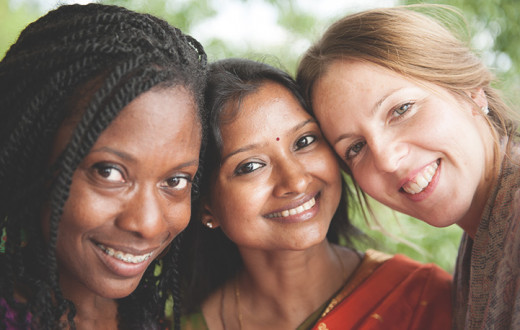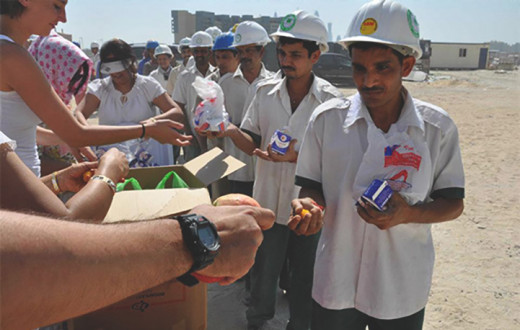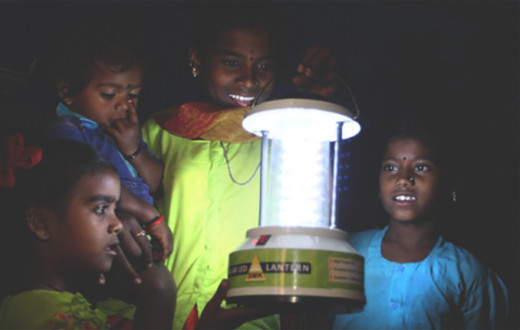This article is a part of the series on a free school run by the Art of Living volunteers in Guntur, Andhra Pradesh.
Shankar Nachiketa
A small, slender figure peeped shyly from behind Madam Maa, his eyes full of wonder and curiosity, eager to strike a conversation. Maa gently pulls him out, urges him to join the other children on the soccer field.
Shankar Nachiketa was barely a year old when he was brought to the hostel by his grandfather, to be adopted and raised. An unusual factor indeed for the child hailed from a well-off family. On probing further, it transpired that his parents had separated and moved on with different partners. Shankar had thus become an unwanted burden to be dispensed with.
It took the infant close to six months to accept his surroundings and normally interact with his new caregivers. At three and a half, Shankar, unaware of his family background, has accepted the hostel as his family, spreading his shy smile on all whom he encounters. Already making his mark as a potential sprinter along with his long leaps, Shankar harbors all the potential to become an excellent athlete in the coming years.
Madhutattvamasi
The little boy was engrossed in dribbling the soccer ball, jumping up every now and then, throwing up his hands to the sky, as if he almost expected to reach up and touch the blue roof in one of his heroic attempts. Ironically, Madhu had suffered disability in walking, his thin legs refusing to do his bidding.
No, the disability was not a result of a birth defect or an accident. It was more a psychological manifestation, the product of intense trauma the child had suffered before he was welcomed to Sri Sri Seva Mandir. For, Madhu is the child of parents who had stabbed each other, orphaning him and his little sister. Madhu soon found himself growing up in a remand home with other juvenile criminals. His disability was the product of this dark past.
Sri Sri Seva Mandir changed all that, both for him and his little sister, nurturing them physically and emotionally, providing them with the education and the much-needed love and security. The result, Madhu not only walks but leaps up to reach the sky, matched only by his sharp brain which is equally eager to reach the stars. A factor that the teachers are confident he will, given his high intellect.
Tattvam
He came into the loving fold of Sri Sri Seva Mandir as a three-month-old orphan infant (his parents lost to a Naxal encounter). Now seven, Tattvam has a peculiar habit of sleeping in a cowshed, or with the puppies, addressing his milk requirements directly from the cow. Even when brought back to his cot, he would wake up and go back to the cowshed. Yet, he has been quick to imbibe the etiquettes taught by his teachers.
When his peculiar ways are pointed to, Maa is quick to add that these are quite common amongst children abandoned and traumatized but these traits change over a period once the child is exposed to constant love and care and taught better ways of living and behavior.
Interestingly, none of these are the original names of these children. All of them have been rechristened with new names. Says Maa, “The children were given Sanskrit names as these words have their own positive impact and naming them after such positive Sanskrit words are bound to accentuate as well as accelerate their positive growth.”
She further adds, “Each one of us can make a difference by addressing children from such abandoned homes, give them the much-needed love and care that effectively erases past impressions. We have a helping hand to address natural disasters, man-made disasters, but what about social disasters? They need an urgent address too. This is where an organization like Sri Sri Seva Mandir steps in to make a difference.”
Indeed it does, borne out not just by the continuously increasing strength of the school’s numbers but also by the physically noticeable changes wrought by the institution on the children. We can further make a difference by lending our cause to such ventures.
Writer: Monica Patel







